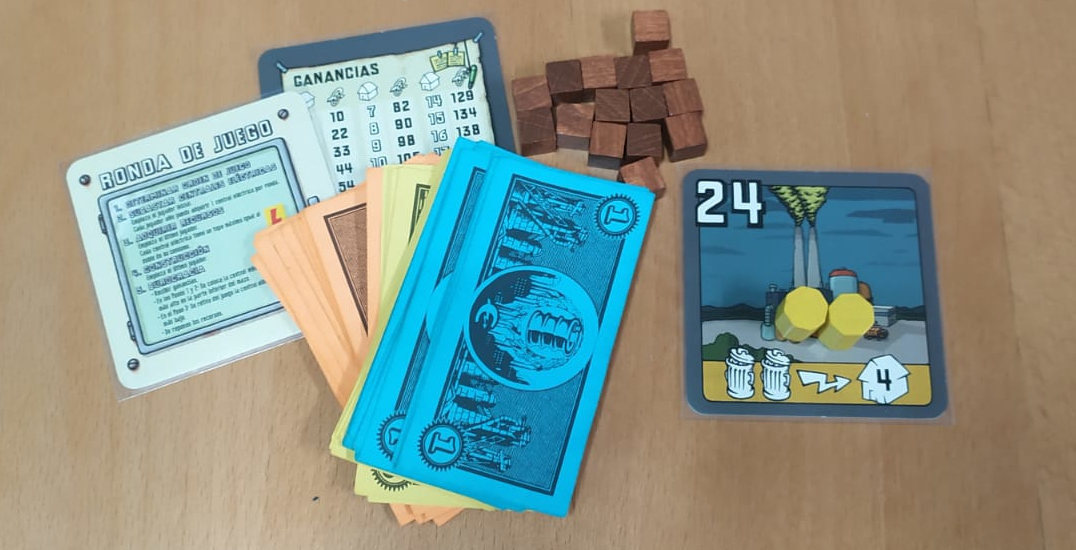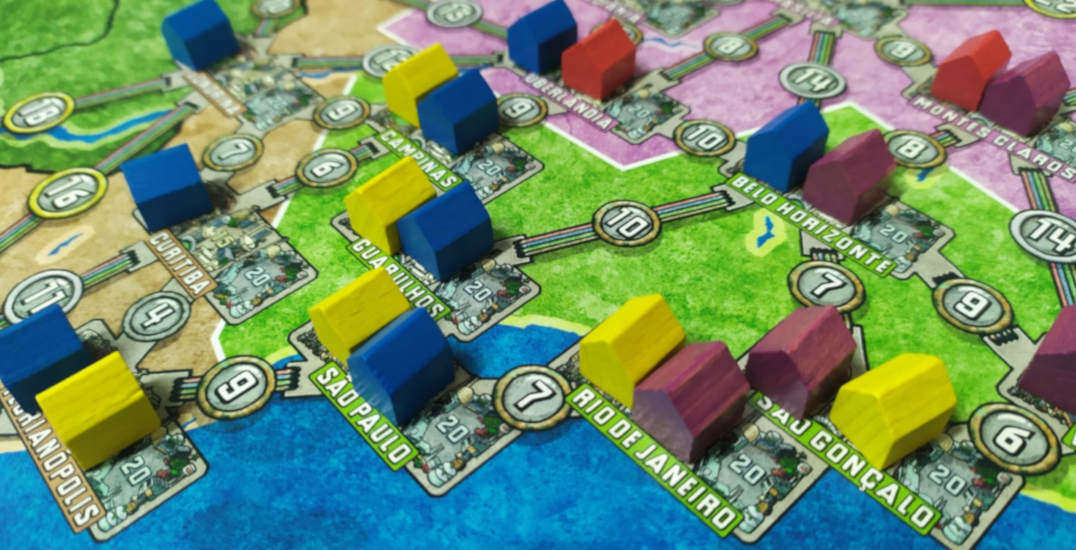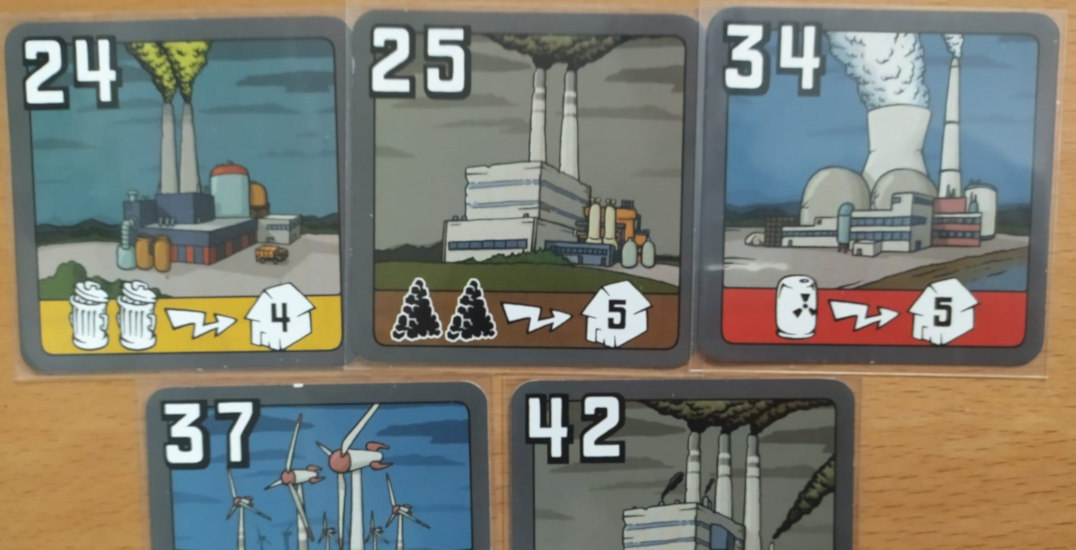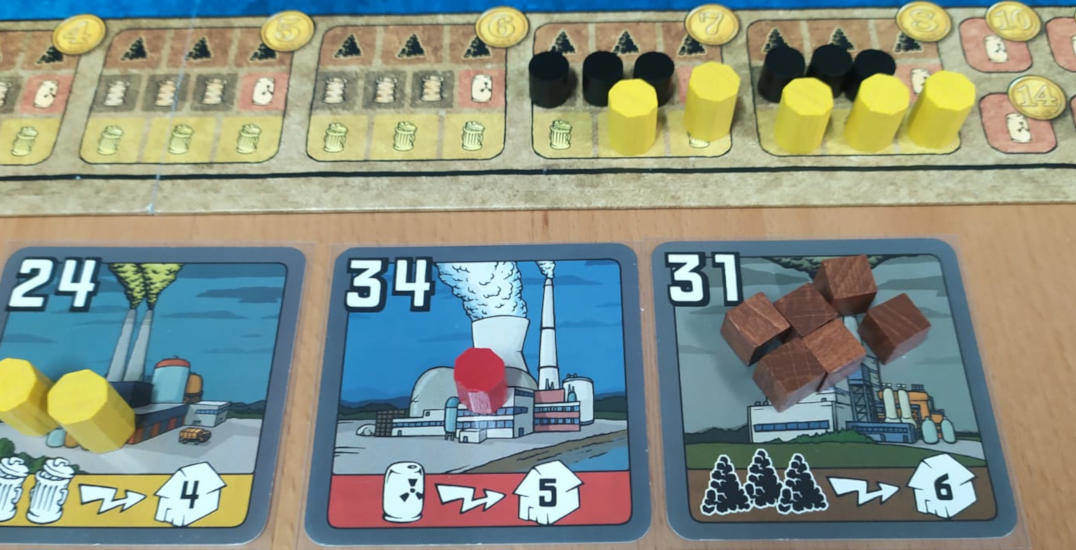
I’m no stranger to mean-spirited games. The Republic of Rome sits proud on my shelf, bringing back memories of triumvirates and last-moment bribery. I love Dune and Cosmic Encounter but would not miss the chance to play a robber baron in 1830. And I’ve enjoyed my single play of Diplomacy, which should automatically label me as terrible people.
And yet, when I sat down to play to play Power Grid today, I did not expect it to turn so ugly.
It was my third time playing Power Grid and I was losing. As it turns out, being stuck on 3 cities and replacing power plants after a single use isn’t a good way to win. I had wasted money on useless bids, on securing safe spots on the board and buying resources I didn’t need. Quite frankly, I was playing terribly and deserved my very last place.
They say Power Grid is like riding a wave; you can’t ride after it has passed. And hence, I had to content myself with scraping by, powering a handful of cities and trying to not lose too harshly.

The map of Brazil we were playing did not help matters. It had an unusually small supply of coal, as well as an overabundance of mediocre garbage plants I was a bit too happy to indulge in. Firmly behind, I saw my opponents get closer and closer to powering the 17 cities needed to trigger a win.
I looked at my board. My power plants were crummy and unable to reach such a high number. Even worse, they were expensive to run and one required three coal. With only five in the supply, I could expect to pay through the nose to run it. I didn’t even know if there would be enough to power it because two of my opponents had their own coal plants.
And then it dawned upon me. The game has a very strong catch-up mechanism: Whoever is losing goes first and gets first pick in resources. So it was not me who was at risk of not having enough coal, it was my opponents! I looked at the board: If I bought all the coal I could for two turns, their power plants wouldn’t be able to work. Five plus six…the leader could only power 11 cities without coal, two less than me. If I could make the game drag on for a bit, I could knock him out too.
I looked at the second player who could trigger the endgame. He was flush with cash but short on power plants. He needed to buy something big and the market wasn’t being kind to him. Most non-coal plants must have been removed from the deck and only a few choices remained.

I decided not to let him have those choices. I overbid, tried to leave him just with coal and promoted other players to take away his chances. Soon, only coal remained and he realized he could no longer win.
Having knocked two players out of contention, the game went on for another turn. I bought all the coal, build my thirteenth city and basked in my move. I had prevented another player from winning, I handed the game to an adversary and made the most probable winner lose on the spot. But I had achieved my goal: I was now third.
That’s what makes it so ugly, isn’t it? It’s one thing to drag out a game, ruin someone else’s chances and propel another player up in the rankings if you squeeze a win. But there’s something downright ugly about doing all those things to be third.
In my defense, this move improved my position on every metric. It took me to third place from last, reduced my distance relative to the leader and increased my victory margin against all other players. As controversial as these kinds of moves can be, I think it was right for me to do it.

My smug sense of pride, however, was quickly done away once I realized it was close to midnight. The last train left the station in fifteen minutes and I could not make it on time. I looked at my opponents and implored “Would you take me to the station?”
And the leader, the guy I had prevented from winning and knocked down to last place, obliged. Sometimes, I just don’t deserve it.




Improving your position at the expense of other players is exactly how the game is played. I see nothing ugly in that.
Ha-haaaa, such a good story. Thank you Erik, you’ve brought a smile to my face this Tuesday morning.
Ha, glad you liked it!
Nice ending. That train only takes winners.